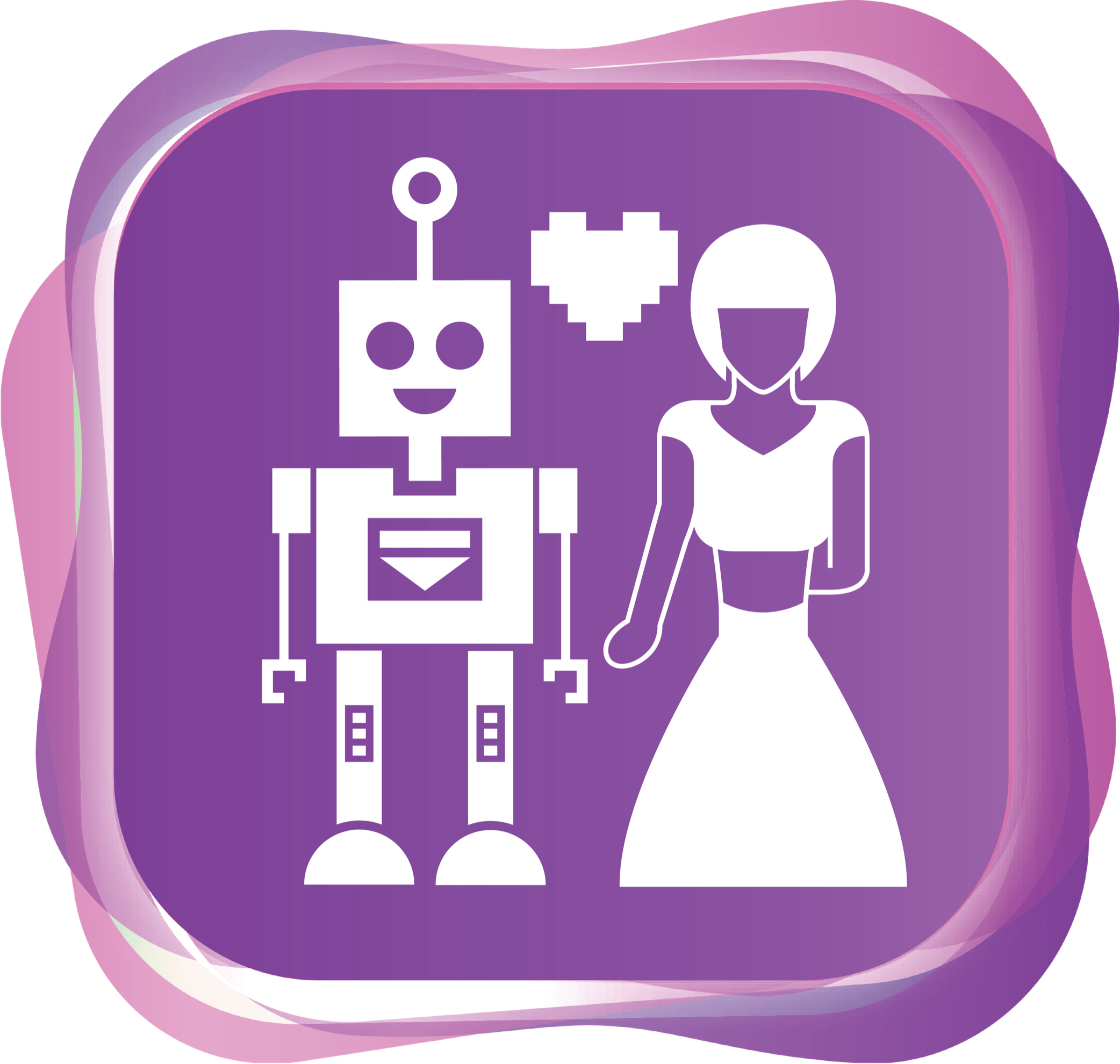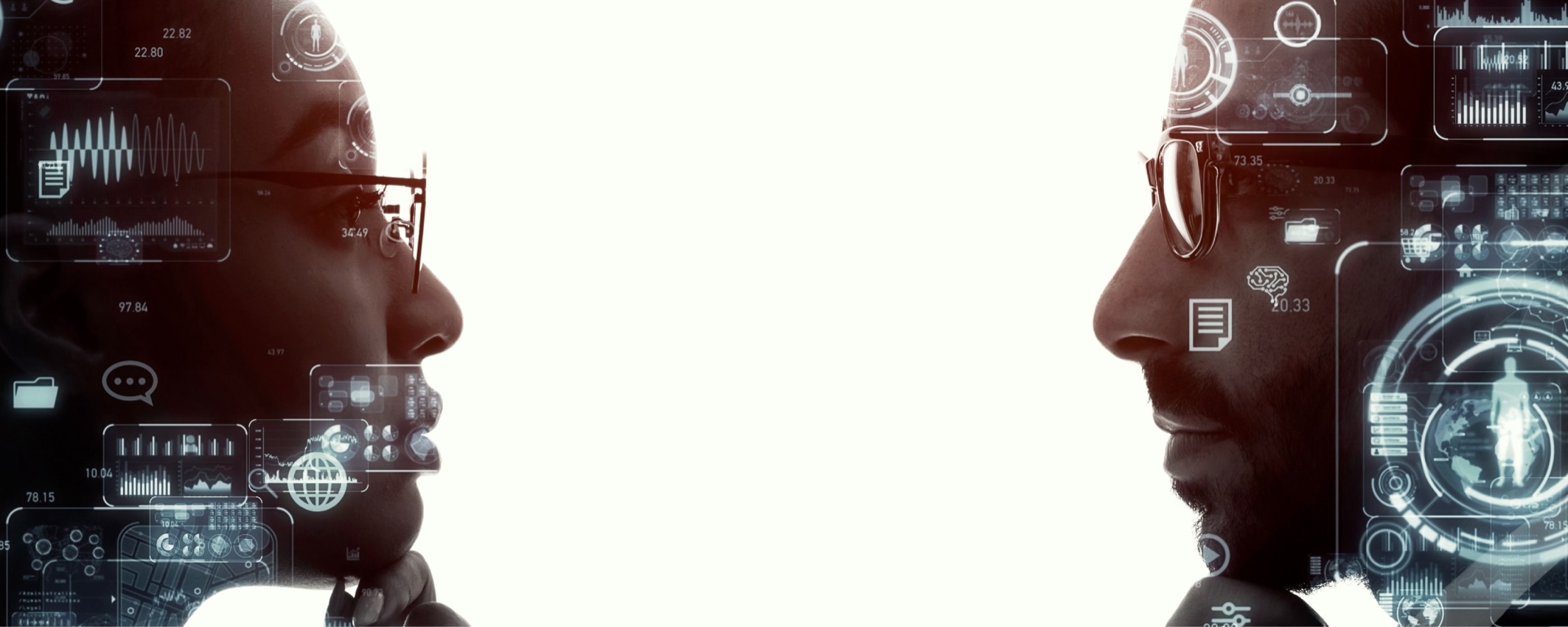 |
CCAI9026 Artificial Intelligence
|
Course Description
From swiping on Tinder to flirting with Dan AI, we are witnessing how algorithms and AI have revolutionized our intimate and emotional lives. As artificial intelligence (AI) transforms our lives and society at all levels, Programmed to Love aims to explore how emerging technologies and AI might shape and redefine human intimate and romantic relationships. Simply put, in this course we ask how the emergence of AI affects how we love, how we express love, and whom we love. Are we, as humans and the society we live in, truly ready for AI companions?
Building on an interdisciplinary approach, this course aims to unveil the intertwined relationships between love, sexuality, and technology in the age of the digital revolution. We will engage with cultural references such as Robot Dreams, Black Mirror, and Her to shed light on controversial issues, including digisexuality, erobotics, and robot rights, and critically examine the potential benefits, risks, and ethical considerations, as AI and other digital technologies revolutionize our intimate and emotional lives. Also, by questioning gender stereotypes in AI-based technology and the socio-technical implications of fembots and artificial women, this course creates a space for debate on the perpetuation of gender inequality and patriarchal values in technology design, and what we can do to create a more diverse and inclusive world in the time of AI.

Course Learning Outcomes
On completing the course, students will be able to:
- Describe and explain how emerging technologies and artificial intelligence shape and redefine human intimate and romantic relationships.
- Demonstrate an awareness of the gender implications of AI technology in societal structures. Foster a more inclusive, reflective, and informed approach to human-AI relationships.
- Examine the potential benefits, risks, and ethical considerations surrounding the integration of AI and other technologies into areas of love, sexuality, and human relationships.
- Creatively and collaboratively envision and assess the potential roles and impacts of artificial intelligence in future society.
Offer Semester and Day of Teaching
Second semester (Wed)
Study Load
| Activities | Number of hours |
| Lectures | 24 |
| Tutorials | 10 |
| Reading / Self-study | 36 |
| Film screening and discussion | 2 |
| Assessment: Essay / Report writing | 6 |
| Assessment: Creative group project presentation (incl preparation) | 45 |
| Assessment: In-class test | 2 |
| Total: | 125 |
Assessment: 100% coursework
| Assessment Tasks | Weighting |
| In-class assessments | 20 |
| Tutorial participation, discussion, presentations | 40 |
| Creative group project and audio-visual presentation | 40 |
Required Reading
Movies:
- Berger, Pablo. (2023). Robot Dreams.
- Jonze, Spike. (2014). Her.
- Jung, Jung-hwa. (2019). My Absolute Boyfriend.
- Patten, Tim Van. (2014). Black Mirror S4E4 ‘Hang the DJ’.
- Spielberg, Steven. (2001). Artificial Intelligence A.I.
- Tibbetts, Carl. (2014). Black Mirror S2E7 ‘White Christmas’.
Selected Articles / Book Chapters:
- Brooks, R. (2021). Artificial Intimacy: Virtual Friends, Digital Lovers, and Algorithmic Matchmakers. New York: Columbia University Press. [“Introduction: In the beginning …”; Chap. 4 “The Intimacy Algorithm”]
- Citron, D. K. (2022). The Fight for Privacy: Protecting Dignity, Identity, and Love in the Digital Age. New York: W.W. Norton & Company. [Chap. 6 “The Right to Intimate Privacy”]
- Danaher, J. (2019). Building Better Sex Robots: Lessons from Feminist Pornography. In Y. Zhou & M. H. Fischer (Eds.), Ai Love You: Developments in Human-Robot Intimate Relationships. Cham, Switzerland: Springer.
- Devlin, K. (2018). Turned On: Science, Sex and Robots. London: Bloomsbury Sigma. [“Epilogue: Better Loving Through Technology”]
- Drage, E., & McInerney, K. A. (Eds.). (2024). The Good Robot: Why Technology Needs Feminism. London; Bloomsbury Academic. [“Introduction: Good Technology Is Feminist”]
- Levy, D. (2007). Love + Sex with Robots: The Evolution of Human-Robot Relations. New York: HarperCollins. [Chap. 4 “Falling in Love with Virtual People (Humanoid Robots); Chap. 7 “Sex Technologies”]
- McArthur, N. (2022). Sex and Technology: From Tinder to Robot Sex. In D. Boonin (Ed.), The Palgrave Handbook of Sexual Ethics (pp. 479-490). Palgrave Macmillan, Cham.
- Morrigan, V. (2023). Patriarchal Imaginaries Beyond the Human: ‘Sex’ Robots, Fetish and Fantasy in Domination and Control of Women. In K. Richardson & C. Odlind (Eds.), Man-Made Women: The Sexual Politics of Sex Dolls and Sex Robots (pp. 91-116). Cham: Springer International Publishing AG.
- Nyholm, S., & Frank, L. E. (2017). From Sex Robots to Love Robots: Is Mutual Love with a Robot Possible?. In J. Danaher & N. McArthur (Eds.), Robot Sex: Social and Ethical Implications (pp. 219–244). Cambridge: MIT Press.
- Strengers, Y., & Kennedy, J. (2020). The Smart Wife: Why Siri, Alexa, and Other Smart Home Devices Need a Feminist Reboot. Cambridge, Massachusetts: The MIT Press. [Chap. 7 “Boys and Their Toys”; Chap. 8 “The Smart Wife Reboot”]
- Turkle, S. (2012). Alone Together: Why We Expect More from Technology and Less from Each Other. Boulder: Basic Books. [Chap. 6 “Love’s Labor Lost”]
- Wosk, J. (2015). My Fair Ladies: Female Robots, Androids, and Other Artificial Eves. New Brunswick, NJ: Rutgers University Press. [Chap. 5 “Engineering the Perfect Woman.”]
- Wosk, J. (2024). Artificial Women: Sex Dolls, Robot Caregivers, and More Facsimile Females. Bloomington: Indiana University Press. [Chap. 4 “Female Robot Caregivers, Doubles, and Companions”; Chap. 5 “Paradoxes of Perfection: A Servant No More”]
Course Co-ordinator and Teacher(s)
| Course Co-ordinator | Contact |
| Dr A.Y.W. So School of Humanities (History), Faculty of Arts |
Tel: 3917 2862 Email: soyamwah@hku.hk |
| Teacher(s) | Contact |
| Dr A.Y.W. So School of Humanities (History), Faculty of Arts |
Tel: 3917 2862 Email: soyamwah@hku.hk |

